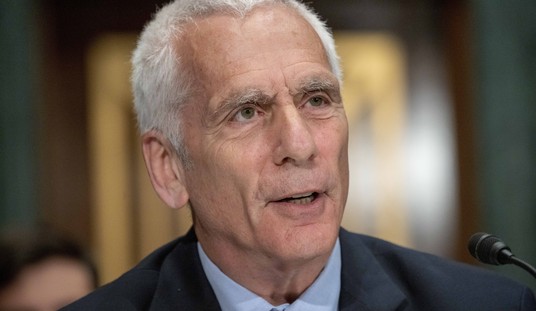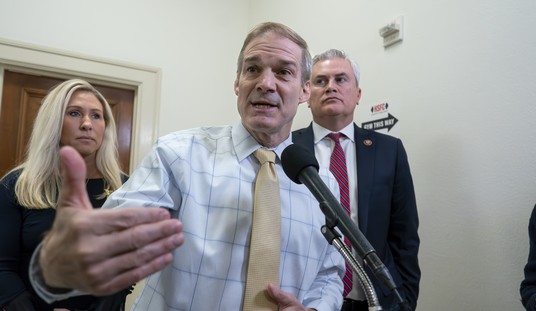Conservative commentator David French gets a lot of heat from the right. As someone who gets criticized by both sides of the aisle because I criticize both sides of the aisle, I can relate. But sometimes French bends over backward to cook up new ways to slam conservatives and engages in the type of mental gymnastics that would make Simone Biles’ jaw drop.
In a recent piece for The Atlantic, French puts forth the absurd argument that legislation regarding what K-12 teachers should be teaching students is a free speech issue. “The American right has lost the plot on free speech,” he writes. He continued:
The passage of Florida’s House Bill 1557, which bans “classroom instruction” on “sexual orientation and gender identity” in kindergarten through third grade and in a manner that isn’t “age appropriate or developmentally appropriate” in all grades, K-12, is merely the latest in a string of what the free-speech-advocacy organization PEN America has called “education gag orders” that have been proposed by Republicans and passed by red-state legislatures from coast to coast.
In his piece, French contends that conservatives have reversed course on their belief in free speech in private and public organizations, including universities and corporations. He points out that the right understood the importance of safeguarding freedom of expression for Americans regardless of political affiliation. But now, he argues, Republicans have decided to limit progressive speech while protecting only the speech of conservatives.
The author takes aim at laws designed to combat the teaching of concepts related to Critical Race Theory (CRT) in K-12 schools. He frames these laws as an “attempt to regulate speech regarding race” rather than efforts to push the idea that people should judge one another by skin color.
French uses as an example the Tennessee law that bars teachers from promoting teaching “ascribing character traits, values, moral or ethical codes, privileges, or beliefs to a race or sex, or to an individual because of the individual’s race or sex.”
The author then questions whether the law would ban the following statement made by Martin Luther King Jr:
“Whites, it must frankly be said, are not putting in a similar mass effort to reeducate themselves out of their racial ignorance. It is an aspect of their sense of superiority that the white people of America believe they have so little to learn.”
The problem with this argument is that this passage could easily be viewed as a historical statement made at a specific time in history when prejudice and racism were rampant. Moreover, it was King’s opinion – it does not mean the teacher quoting him agrees that this statement is relevant today. Moreover, the civil rights leader was not intimating that whites were inherently racially ignorant by dint of their skin color.
Later in the piece, French turns back to Florida’s Parental Rights in Education law, claiming it could be used to stifle free speech on a K-12 campus. He writes:
Florida’s H.B. 1557 suffers from each of the classic flaws of a speech code. On its face, it’s aimed at speech and ideas regarding “sexual orientation and gender identity.” Key terms such as instruction and age appropriate are left undefined, which leaves teachers uncertain about the law’s scope. And it explicitly grants a parent the right to sue a school district if his or her “concern” is “not resolved by the school district.”
The author then puts forth a hypothetical scenario similar to others given by opponents of the law:
To consider the potential breadth of the law, imagine that a young student asks a teacher why his or her classmate has two mothers or two fathers. If the teacher responds with a factual, value-neutral response, is he opening his school district to litigation? After all, answering classroom questions, even when not directly related to the curriculum, fits within the plain meaning of the term classroom instruction.
This is a nightmare scenario in which teachers and districts are sued simply for mentioning a same-sex relationship. As I’ve argued previously, this is a situation that is unlikely to materialize. Firstly, a teacher could easily tell the child to ask their parents or another adult the question French mentions. There is no reason why they are obligated to provide an explanation. But even if they did give a short answer, it is unlikely a parent would spend the money on a lawsuit when the odds are high that they will lose.
French is correct in his assertion that much of the language is rather vague – but it isn’t as vague as he and leftist critics would have us believe. The term “instruction” could easily fall under the “I know it when I see it” category. But even if this situation came to pass, it will be the courts that will end up deciding how granular this law will go when it comes to adjudicating these situations. My crystal ball tells me that it would only be the most egregious of situations that would actually come to litigation.
The bottom line is that Florida’s law – and others like it – is not about free speech. We can be sure that if teachers began teaching Nazi-style fascism as an ideology students should embrace rather than a concept to be understood, people like French would strenuously object. If a school district decided to include in its curriculum lessons that involve showing hardcore pornographic videos to six-year-old children, they would take issue with it.
They would never cry “free speech” in these scenarios – and they shouldn’t.
This is not a free speech issue. It is a parents’ rights issue.
Yes, protecting free speech is essential – especially on college campuses and on social media. There are folks on the left seeking to curtail right-leaning views in these forums, and as French acknowledges in his piece, this is a dangerous line of thinking. But we must not attempt to paint debates regarding the teaching taking place in K-12 as a similar issue. Indeed, while folks are worrying about states passing laws barring CRT concepts, it is becoming apparent these measures are largely ineffectual anyway. Parents should have the right to determine what their children are taught, period. One can argue the merits of specific pedagogic techniques – but we would make a mistake in defining this as a First Amendment issue.













